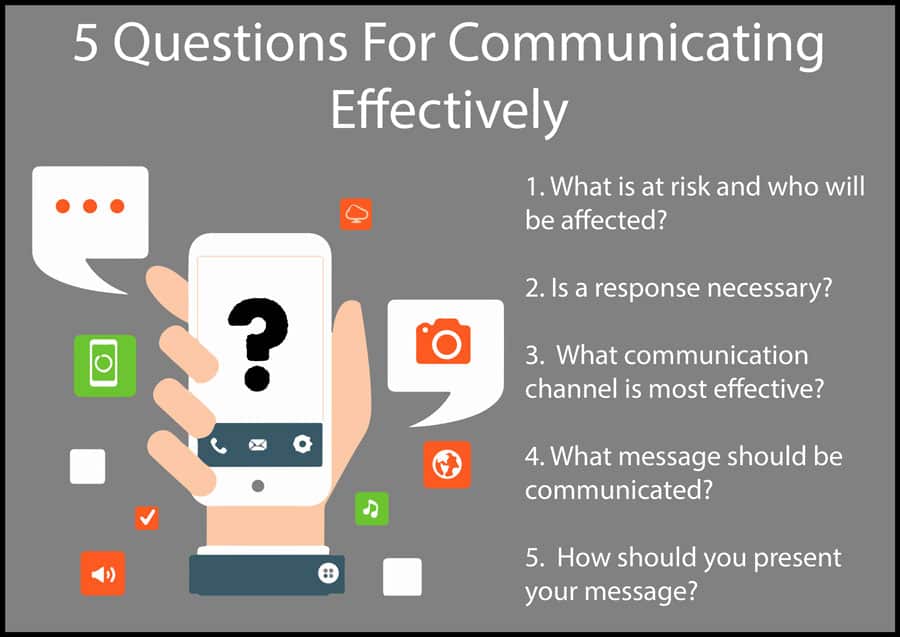In global business, managers must be able to think on their feet and be aware of the situation, setting and environment in which they are communicating.
When confronted with strange and unfamiliar communicating conundrums, effective international managers identify options that resolve the situation and meet the cultural, emotional and business requirements of the audience. Here’s 5 questions that 24 Hour Translation Services recommends that managers employ to communicate effectively.
1. What is at risk and who will be affected?
Instead of solely thinking about your objectives, consider the requirements of your audience and other affected parties. Before communicating a messages, consider how it will impact your team, company, partners and other stakeholders. An effective message identifies all potentially affected parties and addresses their information needs. Messages should be delivered in a manner that respects each audience member’s cultural, emotional, informational and business requirements and expectations.
2. Is a response necessary?
Not every situation requires a response and many times silence can be golden. Sometimes, this is true in very heated discussions where emotion could drive an inappropriate response. Other times, it’s better to keep quiet and focus on listening and demonstrating legitimate interest in what others are communicating to you. Once you think you fully understand the situation, look for openings where you can politely and effectively make your case and persuade others.
3. What communication channel is most effective?
In today’s world of electronic communication, business communicators have many choices for communicating messages. If control is a primary concern, a manager might decide on the use of a multimedia presentation, video or paper document. If collaboration is necessary, a conference or video conference might be employed. When the situation is less formal, a manager might opt for a simple e-mail, text message or even a casual office visit.
4. What message should be communicated?
Sometimes the information that you should include in a message isn’t immediately clear. Understand your audience’s background, knowledge, vocabulary and experiences. You should craft your message around your audience, their cultural expectations and your communication goals.
5. How should you present your message?
What points should take precedence over others? What words, phrases, visuals or stories should you use to maximize effectiveness? The way you arrange your message and the way you present your material influence audience retention and receptiveness to your message.

